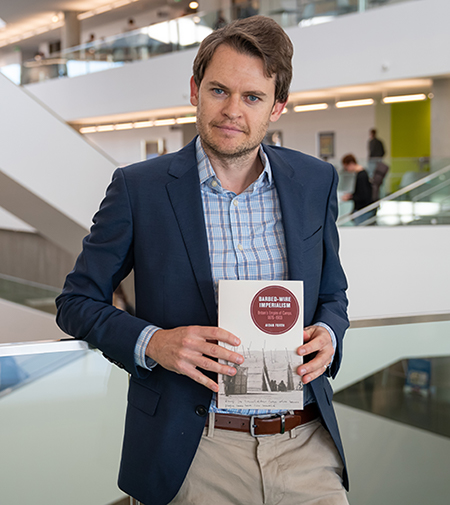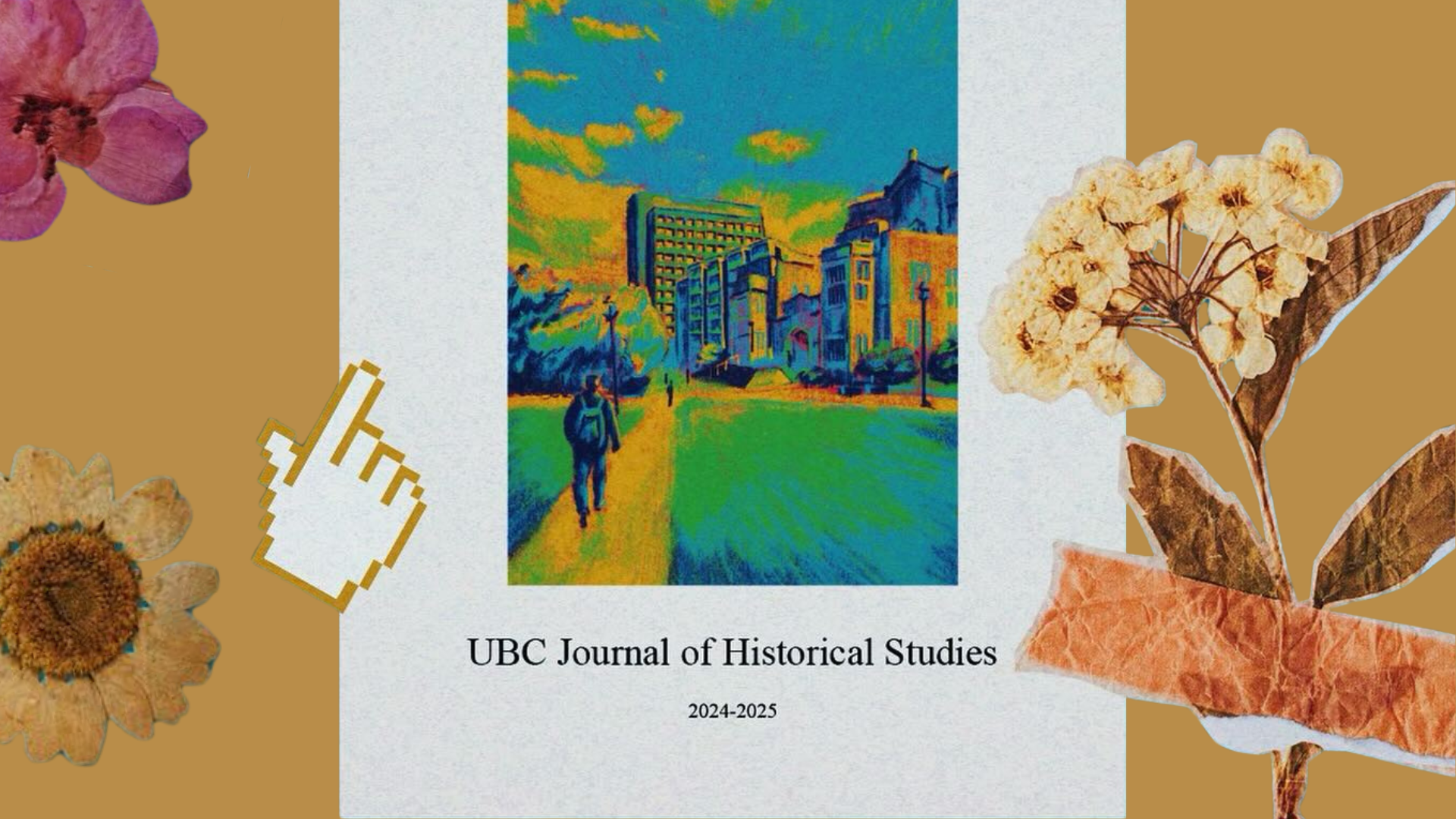

Congratulations to Aidan Forth on his achievement – the 2019 Wallace K. Ferguson Prize of the Canadian Historical Association. This award recognizes an outstanding scholarly book in a field other than Canadian history. Aidan received this award for his book Barbed-Wire Imperialism: Britain’s Empire of Camps, 1876-1903 (University of California Press, 2017).
Aidan Forth is currently an Assistant Professor of History at MacEwan University in Edmonton, Alberta and prior to this position, Aidan was an Associate Professor of History at Loyola University in Chicago.
Learn more about Aidan’s journey from a History Honours student to history professor in an insightful Q&A. Aidan also discusses his book that earned him the 2019 Wallace K. Ferguson Prize.
Describe your academic history leading to your current position at MacEwan University?
My career as a historian started in the Honours Program at UBC in Vancouver and has recently (and in some ways, unexpectedly) returned me back to Edmonton, where I spent much of my childhood. The path connecting these two western Canadian cities, however, has been long in duration and global in reach.
Following my BA at UBC I lived in Japan for a year teaching English before pursuing an MA at Queen’s (Kingston, ON) and a PhD at Stanford (California).In the process, dissertation research took me to Britain, France, Germany, Belgium, Israel, and most importantly, South Africa and India.
After graduation, I launched my career at Loyola University, Chicago as an Assistant and then Associate Professor. It was here that I developed a passion for teaching and learnt to appreciate the thrill of opening students’ minds to the intellectual possibilities of academic scholarship.This is a passion I hope to bring to my new institution, MacEwan, while appreciating the many advantages of returning to life in Canada.
How did the History Honours Program help prepare you for graduate school?
With its small seminar-style discussions and substantial graduating thesis based on primary source research, the UBC Honours Program already functions like graduate school, and my exposure to such a dynamic intellectual environment assured that I would succeed in the future.
I remember entering my first PhD seminar at Stanford, intimidated and starstruck, but it didn’t take long to get comfortable and realize that my preparation was just as good as that of my counterparts from ivy league and elite liberal arts colleges in the United States. Looking back at my UBC Honours thesis Terror, Treason and the Politics of Power: The Gunpowder Plot and After, 1605-1620, I chuckle at my youthful intellectual naivete, but I also appreciate that the task of writing an original 80-page essay introduced me to the art and craft of historical scholarship.
Just the other day, I mentioned the thesis to my students in History 100 at MacEwan to demonstrate how the questions historians ask and the topics we pursue are often tied up with the times in which we live—in this case, the atmosphere of post-9/11 and thesuspicion and discrimination aimed at religious minorities (Muslims in particular), which I deemed broadly analogous to the anti-Catholic measures passed in the wake of Guy Fawkes’ failed plot to blow up the parliament buildings in Westminster.
What motivated you to write Barbed-Wire Imperialism?
I have long believed that good historical scholarship can engage with current events. When I first learned that the term “concentration camp” was coined not for Nazi installations in interwar Europe but for a network of enclosures established by Britain during the South African (or Anglo-Boer) War (1899-1902), I suspected that a hidden history of camps could tell us much about our own historical moment as borders tighten and barbed-wire fences proliferate across the global landscape.
While tracking down the motivations and earlier careers of those responsible for detaining black African and white Afrikaner civilians in South Africa, I soon realized that “concentration camps” were a ubiquitous and longstanding feature of British colonial rule, particularly in Victorian India, where Britain concentrated some ten million refugees displaced by hunger, disease, and social unrest in a massive—and hitherto unexplored and unacknowledged—system of work camps and detention centres.
Over the course of three decades, British officials normalized the camp as a standardized technology of social and political control—and one that offered lessons for future regimes. When the British ambassador to Germany, Sir Nevile Henderson, criticized the Nazis’ burgeoning network of camps in 1939, for example, the Nazi leader Herman Goering walked to his bookshelf, pulled down the “K” volume of a German encyclopedia and read “Konzentrationslager: first used by Britain in the South African War.”
Less sensational, but perhaps more relevant, is the fact that Britain established many of the routines, regimens, and public justifications for mass encampment that were later assimilated by the Red Cross, League of Nations, and the governments of other western democracies. Such a legacy can tell us much about the prevalence of refugee camps and migrant detention centres in the world today. The racial attitudes and cultural anxieties of colonial rule, meanwhile, have been redeployed in the twenty-first century to justify the incarceration of more than twenty million innocent people—many from the former spaces of empire—within barbed-wire holding cells on the borders of Europe and America.
For more information:
https://www.ucpress.edu/book/9780520293977/barbed-wire-imperialism


